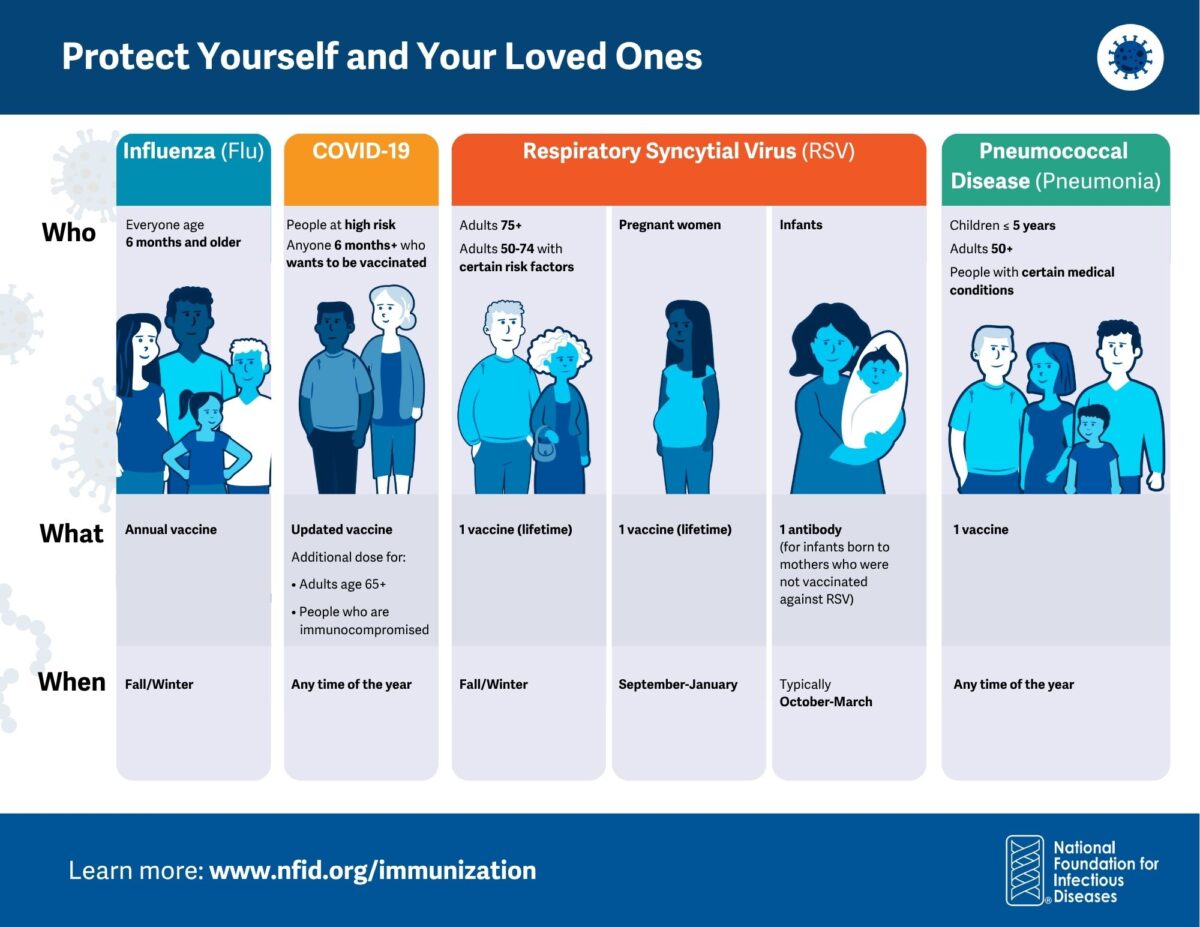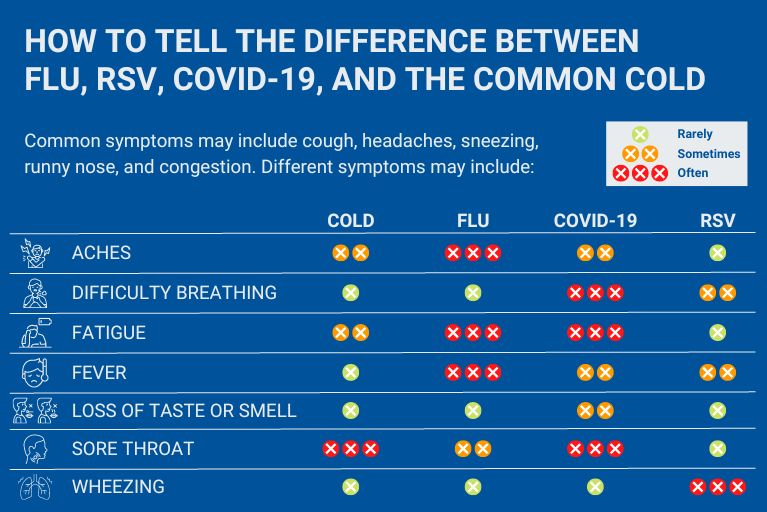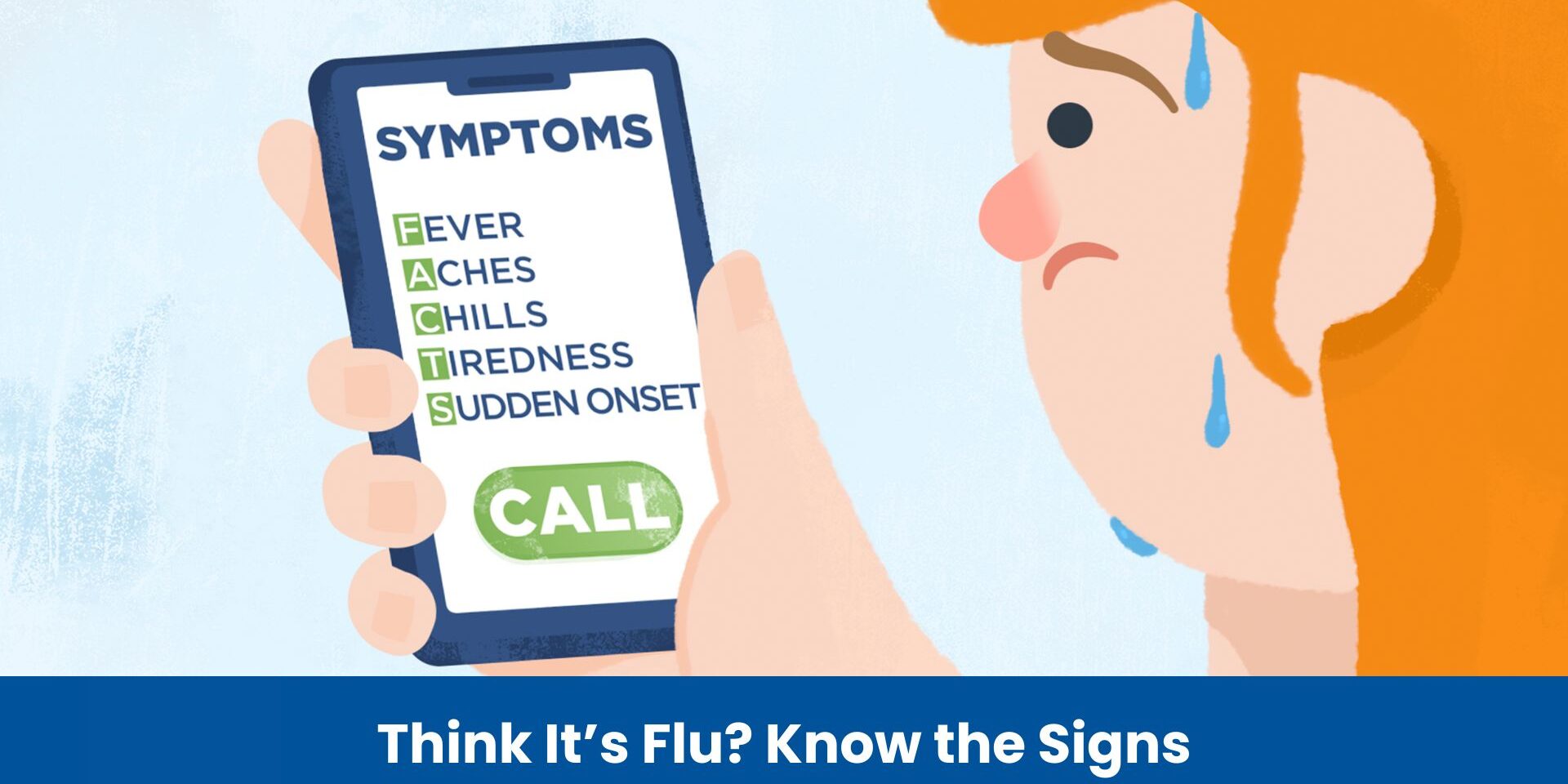
Fall is the start of respiratory season—when illnesses like influenza (flu), COVID-19, respiratory syncytial virus (RSV), and pneumococcal disease can spread easily. Even if you are healthy, you can still spread these diseases to others who may be at higher risk for serious disease-related complications. Fortunately, there are steps you can take to help stay healthy and protect yourself, as well as your family, friends, and community.
Here are tips to help you stay healthy during respiratory season:
Get Vaccinated
Everyone age 6 months and older should get an annual flu vaccine. Talk with a healthcare professional about whether you need an updated COVID-19 vaccine every year. Ask a healthcare professional if you also need RSV or pneumococcal vaccines, especially if you are pregnant, age 50 years or older, or have a chronic health condition like heart disease or asthma.
Practice Healthy Habits
- Wash Your Hands: Clean hands help stop the spread of germs. Use soap and water or, if not available, hand sanitizer that is at least 60% alcohol.
- Cover Coughs and Sneezes: Use a tissue or your elbow to cover your mouth and nose.
- Stay Home if You Are Sick: If you feel sick, stay home to protect others.
Know the Symptoms
Many respiratory illnesses have common symptoms including fever, cough, sore throat, runny or stuffy nose, body aches, headache, chills, and tiredness. Identifying illnesses early helps ensure you receive the right treatment to feel better faster and prevent serious complications. If you have symptoms, contact a healthcare professional as soon as possible to determine whether testing or treatment is appropriate.
Ask about Antivirals to Feel Better Faster
Even with immunization, breakthrough infections can occur—and that’s where antiviral medications can play an essential role. Specific antivirals for flu or COVID-19 work best when started within 48 hours of the first symptoms, but may still help if started later. Antivirals are available by prescription only—you cannot buy them over the counter, so call a healthcare professional at the first sign of symptoms.
Antivirals can help:
- Reduce the severity and duration of illness
- Lower the risk of related complications (such as pneumonia or hospitalization)
- Protect vulnerable populations—including older adults, young children, pregnant women, and those with chronic health conditions
Stay Informed
Follow trusted sources like NFID for the latest immunization guidance, including respiratory disease prevention and treatment strategies.
To join the conversation and get the latest news on infectious diseases:
- Like and follow NFID on social media
- Listen and subscribe to the Infectious IDeas podcast
- Subscribe to receive future NFID Updates
Related Posts

5 Reasons Why Vaccines Are Good for Your Heart
For people with heart disease, getting vaccinated is as important to staying healthy as diet and exercise
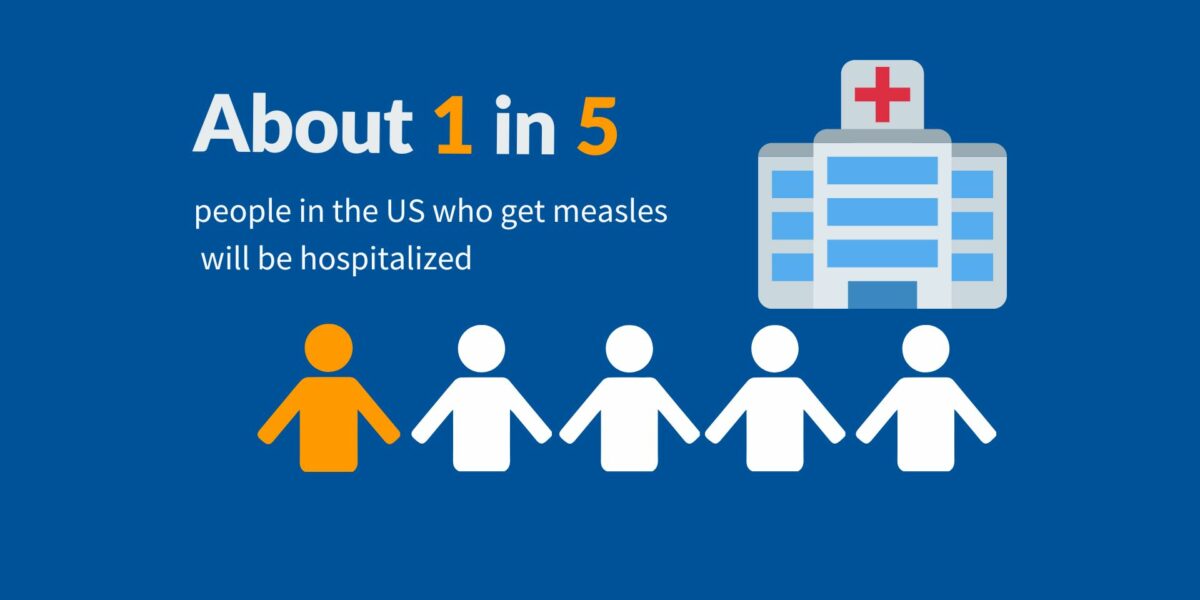
News Round-Up: Vaccines, Measles, Flu, and COVID-19
News and expert insights on COVID-19, influenza, measles, outbreak preparedness, and vaccine policy—including growing concerns about data gaps, divergent immunization recommendations, and the real-world consequences for public health
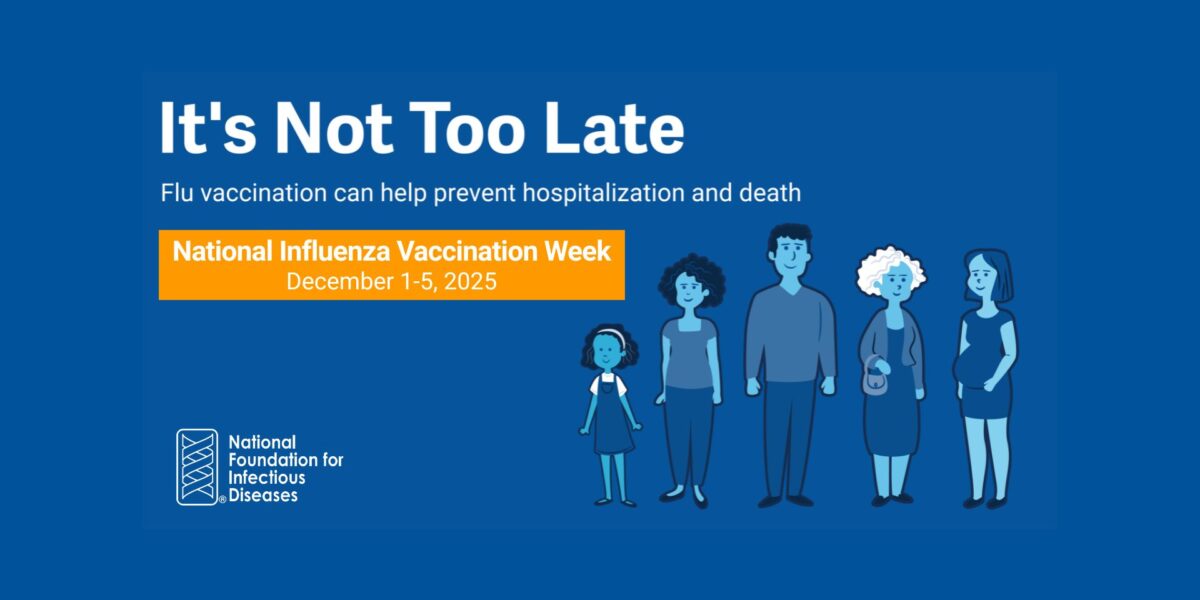
There’s Still Time: #GetVaccinated to Help #FightFlu
NFID and partners offer resources for National Influenza Vaccination Week, December 1-5, 2025, to raise awareness about the importance annual flu vaccination …

